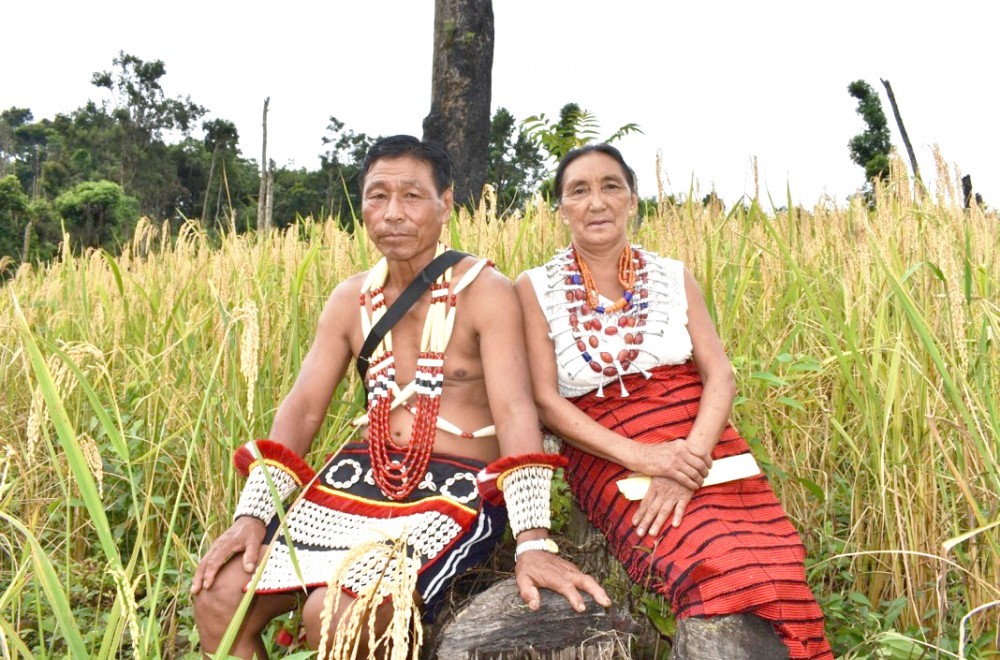Retired teacher Imkongtemjen Jamir (71 years) and his wife Yangernungla (67 years) achieved ‘Mera Nuja’ in Longsa village under Mokokchung district on September 22. (DIPR Photo)

Mokokchung, September 25 (MExN): ‘Mera Nuja’ one of the prestigious achievements and recognition of wealth that a farmer is bestowed upon and enter the “wealthy elite” in a village according to Ao culture, was hosted by Imkongtemjen Jamir of Longsa village under Mokokchung district on September 22.
Retired teacher Imkongtemjen Jamir (71 years) and his wife Yangernungla (67 years) informed that “in order to achieve this status and honour, he first must perform a task called ‘Kimang Nuja’ which is another prestigious act where he invites his relatives to partake in his harvest by cultivating the biggest jhum field.”
“I have completed that task 25 years ago and today I have achieved the final task ‘Mera Nuja’ to leave a legacy of hard work and display of wealth which brings honour and respect,” Jamir said. “The task was meant to challenge the upcoming generation to incarnate and uphold the rich heritage of our forefathers and to be hard working farmers,” he added.
According to a DIPR report, this practice has become very rare in Ao land today, however Longsa being one of the revered villages to uphold its custom and tradition rigidly have kept this practice alive. There are more than ten farmers in Longsa village today who have achieved this task and enter the “wealthy elite.”
The last farmer to host this ‘Mera Nuja’ was in 2013 and after gap of seven years, Imkongtemjen Jamir who is also the Head GB of Longsa, has achieved this prestigious honour.
While hosting the ‘Mera Nuja’ all the villagers are invited to partake in his bumper harvest along with a feast and honorary dedicatory songs to his achievement from his clansmen and women for bringing honor and pride to the clans and his family. “The harvest should be done on that day itself,” he added. “It is custom to gift meat to every persons who partake in his harvest,” he said.
Jamir said this year he cultivated more than five acres of Jhum land and sowed 10 tin of rice without using pesticides and harvested 12,000 Kgs of rice approximately. “The harvest today might be the highest rice harvested by a lone Jhum land farmer in Mokokchung district,” the DIPR report added.
“After retirement from government service, I have dedicated my whole 25 years in Jhum cultivation in order to teach the youngster that we must get back to agriculture to be self sufficient instead of depending on few Kgs of government relief rice every month,” Jamir added.




